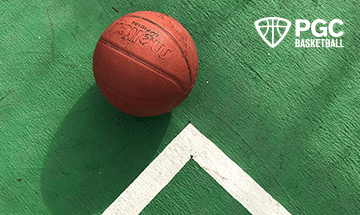Leadership Lessons from the Weight Room
As a sports performance coach I believe the weight room is one of the best places for athletes to learn life lessons.
Here are six leadership lessons I’ve learned in the weight room from training experiences with my own athletes, as well as two years with the University of Maryland men’s and women’s basketball teams.
Attention to Detail
All great leaders know how important it is to have a disciplined team that pays attention to details; doing the right thing, at the right time, all the time.
As a coach or player leading your workout are you giving clear, detailed instructions to your team on how to execute each movement and the order in which the athletes are to complete them? Are you willing to have your team restart a set of exercises if they don’t complete them in the order or detail you described, even if it makes you the ‘bad guy’?
Three ways to start implementing more attention to detail during your training sessions include:
- Tell your players exactly how you want them to enter your weight room or performance center (address the coach simply by saying hi, fill out a ‘wellness’ questionnaire telling you how they’re doing physically, hop on a foam roller/do extra stretching before the warm-up begins).
- Give your team instructions about how to handle water breaks with a time frame and whether you want them standing/sitting/tracking the sets and reps they just completed, etc.
- At the completion of each set of exercises or the end of the workout, have the team straighten weight plates/medicine balls/resistance bands in a way that’s presentable and looks ‘clean’.
As a leader, imagine having a team full of disciplined and detailed athletes. Use the weight room to practice and reinforce the characteristics that lead to precise and committed attention to detail. Your team will thank you in the long run.
Accountability
The weight room is also a great place to practice holding yourself and your teammates accountable. Encourage and coach your teammates between sets instead of sitting down to rest between sets. As an example, have your players help a teammate who may not be doing the movement correctly, or encourage a teammate who is giving less than their best. Be intentional about this part of the workout. Training players to be accountable in very controlled settings like a weight room workout prepares them to be more accountable to their coaches and teammates on the field or court. Don’t take any time you have around your team for granted and use these times to instill all of the character traits you believe are important for success.
Selflessness
During an intense training session it is very easy to get tired and focus on how hard things are, instead of encouraging your teammates and keeping your focus on the team. As you transition or take short breaks during the workout, give your players a cue that encourages them to continue thinking about their teammates, rather than moving to an internal, self-centered state of mind. For example, have each player touch a team logo that reminds them to reset their focus before continuing the workout. If you can train your players to stay focused on what the team needs when they’re tired, you will be amazed at what this does for your team during tough practices and games.
Vision
Any effective training program begins with an in-depth assessment of a player’s strength, conditioning, and movement capabilities among other things. Great performance coaches also communicate with their head coaches to know exactly where they need to get each player before the season begins. It is this pre-assessment and end-goal that allows the best performance coaches to create effective training protocols specified for each player that will take them from where they are and get them where they need to be.
Just as great performance coaches don’t throw a ‘cookie-cutter’ training program at their team, great leaders don’t guess what their team needs, they assess what their team needs. They evaluate their team’s strengths and weaknesses in areas such as communication and body language, to enthusiasm and focus. Leaders can then create a plan that will allow their team to grow in each of these key improvement areas throughout the year. Create a vision for your team’s leadership development, because it won’t happen on its own.
Once you’ve evaluated where your team is at from a character and leadership perspective, begin creating games/challenges that help teach and reinforce the weaknesses you have found. Give your players opportunities to demonstrate great body language, communication, or enthusiasm, and then praise them for it every time they naturally do it on their own.
Teachable Moments
The best performance coaches see themselves as a direct extension of the coaching staff, and use their time with the athletes to reinforce all of the goals the coaching staff has for the team. Over the past three years training athletes and seeing the best of the best coaches work, it is easy to see how many teachable moments there are in every training session.
When your team’s energy level coming into the workout is low, share with them that if they go into a road game with low energy like this, they will get blown off the floor. If your team has great attention to detail for the first half of the workout but fades at the end, talk about how important it is to be focused during crunch time of a one-point game. If a player skips a rep or set, ask them if they can really be their best if they have those same habits with their on-court workouts. The teachable moments are endless, and great leaders point them out and challenge their team every time they see them.
Self-Discipline
Great leaders know that in order to impact others, they need to first lead themselves, lead by example, and practice what is preached. The performance coach I worked for at the University of Maryland is the most fit, disciplined, and hard-working person I have ever met. He does every single workout he asks our players to do, and is the most respected person I know because of his actions.
Great leaders ask their teams to bring more energy, to communicate more, and to be more selfless. Ask yourself if you’re doing all of those things to the best of your ability. Leading only by example is not enough, but without it, you have no chance to lead anyone at all.
Submitted by Tucker Herzberg
Follow Tucker on Twitter – @TuckerHerzberg
For more information on the Lead ‘Em Up program visit: www.leademup.com
Follow Lead ‘Em Up on Twitter – @Lead_Em_Up

Related Articles
The Beauty of the Game | The Leadership Podcast
Mano joins Jan Rutherford & Jim Vaselopulos, on The Leadership Podcast to talk about his sports and business experiences with stories and advice on thinking like a coach, communicating, and making a difference in people’s lives.
The 5 Life-Altering Journeys Players Go on During a PGC Basketball Camp
When your child attends a 5-day camp, they get around like-minded people all looking to improve at this thing they love called basketball.
Are you contributing or contaminating?
Players often measure their contribution just by how many points they score or the number of rebounds and assists they make. But what a good basketball player brings to the game and their team goes beyond stats. At PGC, we say you are either contributing or contaminating. Find out which one you’re doing in this week’s new blogpost.
About PGC
PGC Basketball provides intense, no-nonsense basketball training for players and coaches. Our basketball camps are designed to teach players of all positions to play smart basketball, be coaches on the court, and be leaders in practices, games and in everyday life.
We combine our unique PGC culture with a variety of teaching methods and learning environments to maximize the learning potential of those that attend our sessions. In addition to spending 6-7 hours on the court each day, lessons will be reinforced through classroom sessions and video analysis.
Our goal at PGC is to empower you with the tools to fulfill your basketball dreams, while also assisting you in experiencing the joy of the journey.
To learn more about PGC Basketball, including additional basketball training tips and videos, visit our YouTube Channel or find us on Facebook, Instagram, and Twitter.















Share This Post